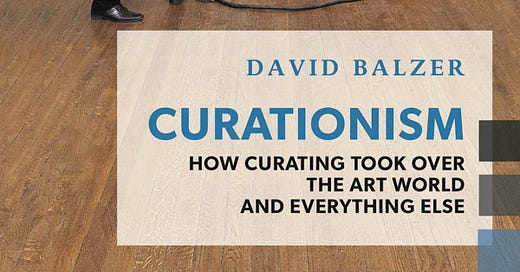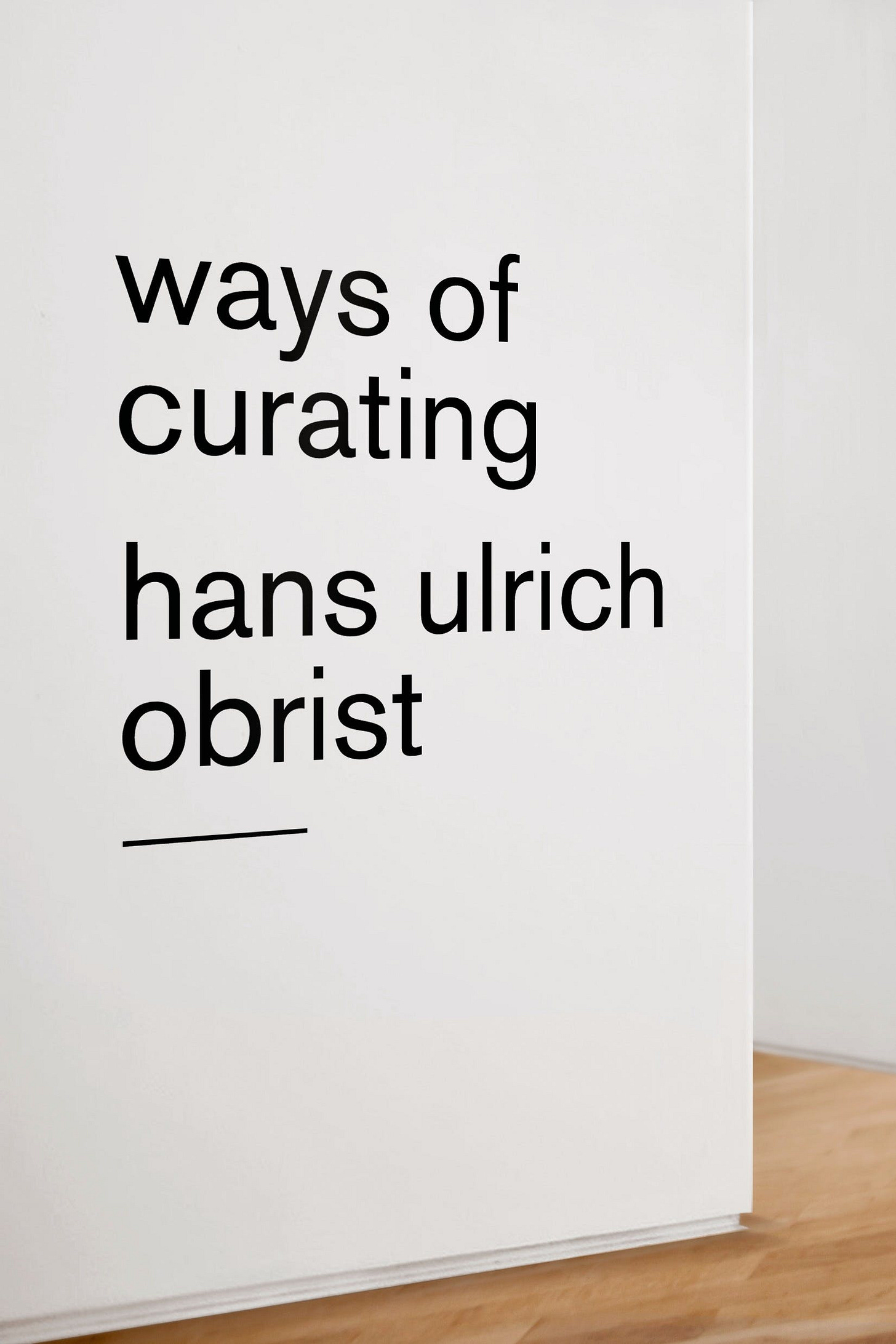Having recently read two books about curation, I run the risk of reflexivity: would I recommend these books to other readers? I refuse to say.
Hans Ulrich Obrist’s Ways of Curating is a collection of partly autobiographical essays by a star curator who insists, with apparent sincerity, that he does not “believe in the creativity of the curator.” His job is to make possible for artists what might otherwise be impossible for them:
Artists and their works must not be used to illustrate a curatorial proposal or premise to which they are subordinated.
Obrist offers a brief history of curating, from the Salon exhibitions of the French Academy, which began in 1648, through the establishment of the Louvre in 1793, with canvasses packed onto gallery walls, to the pristine white cube of today. Key turning points in Obrist’s narrative are Courbet’s 1855 Pavilion of Realism, a temporary structure near the Salon in which he showed The Artist’s Studio (rejected by the Academy) along with 43 other work…
Keep reading with a 7-day free trial
Subscribe to Under the Net to keep reading this post and get 7 days of free access to the full post archives.




